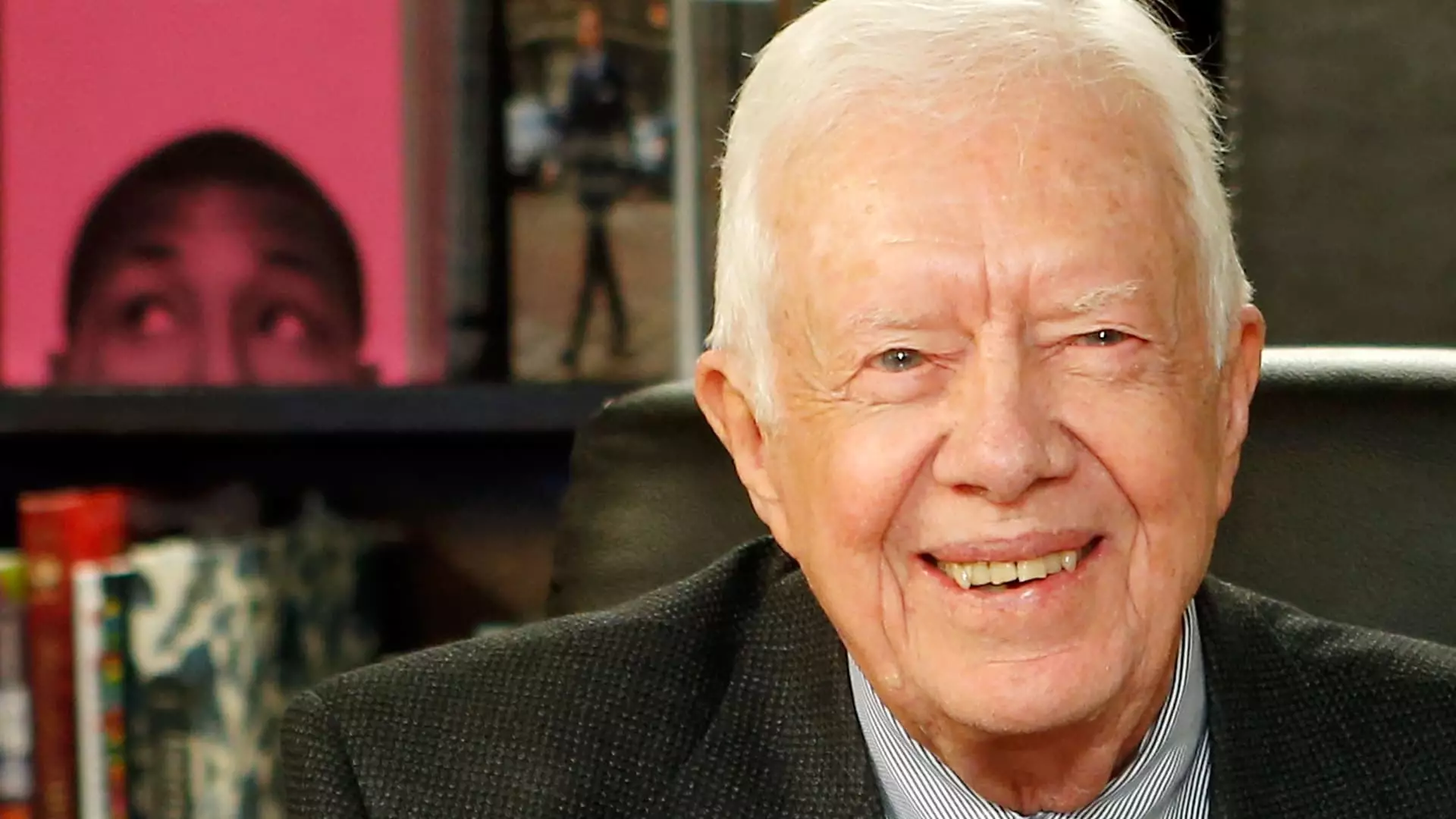Jimmy Carter’s journey into the political arena was marked by a sincerity that resonated with many Americans during a time of uncertainty. In his acceptance speech at the Democratic National Convention on July 15, 1976, he confidently declared, “My name is Jimmy Carter, and I’m running for president.” This declaration was not merely an opening line but a promise of accountability and openness that would characterize his presidency. Unlike many of his predecessors, Carter’s approach to leadership was rooted in humility and a strong moral compass, which heavily influenced his policies, both domestic and foreign.
Carter’s candidness about his personal imperfections was refreshingly humanizing, as illustrated by his admission during a Playboy interview in November 1976, where he acknowledged having “looked on a lot of women with lust.” This type of vulnerability set him apart in a political landscape often dominated by bravado and false pretenses. By admitting to personal flaws, he forged a connection with the electorate, establishing not just a line of communication but a sense of shared humanity.
A defining trait of Carter’s presidency was his unwavering commitment to peace and human rights. His inauguration speech on January 20, 1977, underscored this ethos, emphasizing the importance of international respect for human rights and the moral obligation to oppose oppression worldwide. He famously articulated the interconnectedness of global freedom and American values, advocating for engagement rather than indifference towards the struggles faced by others.
Carter’s dedication to human rights was exemplified in his foreign policy initiatives, which sought to promote democracy and challenge authoritarian regimes. In interviews later in life, he often reflected on his notable achievements, including the Camp David Accords and normalized relations with China, referring to them as pinnacles of his presidential legacy. His commitment to peace often stood in stark contrast to prevailing militaristic sentiments, as he recognized that true strength lay in diplomacy and understanding rather than aggression.
Carter faced significant challenges throughout his presidency, particularly concerning the Iranian hostage crisis. In a candid 2014 interview, he recounted the immense pressure he faced, revealing that military action could have swayed public opinion in his favor but at a grave cost to innocent lives. Instead of succumbing to calls for force, Carter demonstrated remarkable restraint and moral introspection, stating, “I stood up against all that advice.” This decision exemplified the ethical dilemmas that leaders often navigate; a commitment to doing what is right, even when it is politically disadvantageous.
His belief that American values are “not luxuries but necessities” encapsulated his philosophy on governance. In his farewell address on January 14, 1981, he articulated how these values matter more than material wealth. Carter’s view of leadership extended beyond political efficacy; it involved fostering a collective vision rooted in justice and morality.
Carter’s reflections on war revealed a profound understanding of its dehumanizing effects. In his Nobel Peace Prize lecture in 2002, he discussed how societies rationalize violence by dehumanizing adversaries, a point that remains highly relevant in contemporary conflict. His advocacy for peace was grounded in the recognition of the dignity of every individual, which often became lost amidst political agendas. By drawing attention to the suffering inflicted by warfare, Carter encouraged a reevaluation of how societies approach conflict and peacebuilding.
In his later years, Carter continued to advocate for fundamental human rights and social justice, addressing issues in the Middle East in his 2006 book “Palestine: Peace, Not Apartheid.” Although his wording in that book sparked controversy, Carter took responsibility for misinterpretations and clarified his intentions, demonstrating accountability even decades later. His humility and willingness to reassess statements reflected a core tenet of his character: a steadfast dedication to truth and progress.
As Carter moves into his twilight years, his reflections provide a window into the values that have guided him throughout his life. His ability to remain grounded amid the complexities of political life is perhaps his most compelling legacy. “I’ve had a wonderful life,” he remarked in an address at the Carter Center in 2015. There lies a deep appreciation for not just his achievements but also for the interconnectedness of human experiences.
Carter’s life serves as a reminder of the power of integrity, compassion, and humility in leadership. His journey—from a committed public servant to a beacon of hope and human rights—continues to inspire new generations seeking meaningful change. In an age marked by division and discord, Jimmy Carter’s legacy is a testament to the enduring strength of moral conviction and the unwavering pursuit of peace and justice for all.


Leave a Reply